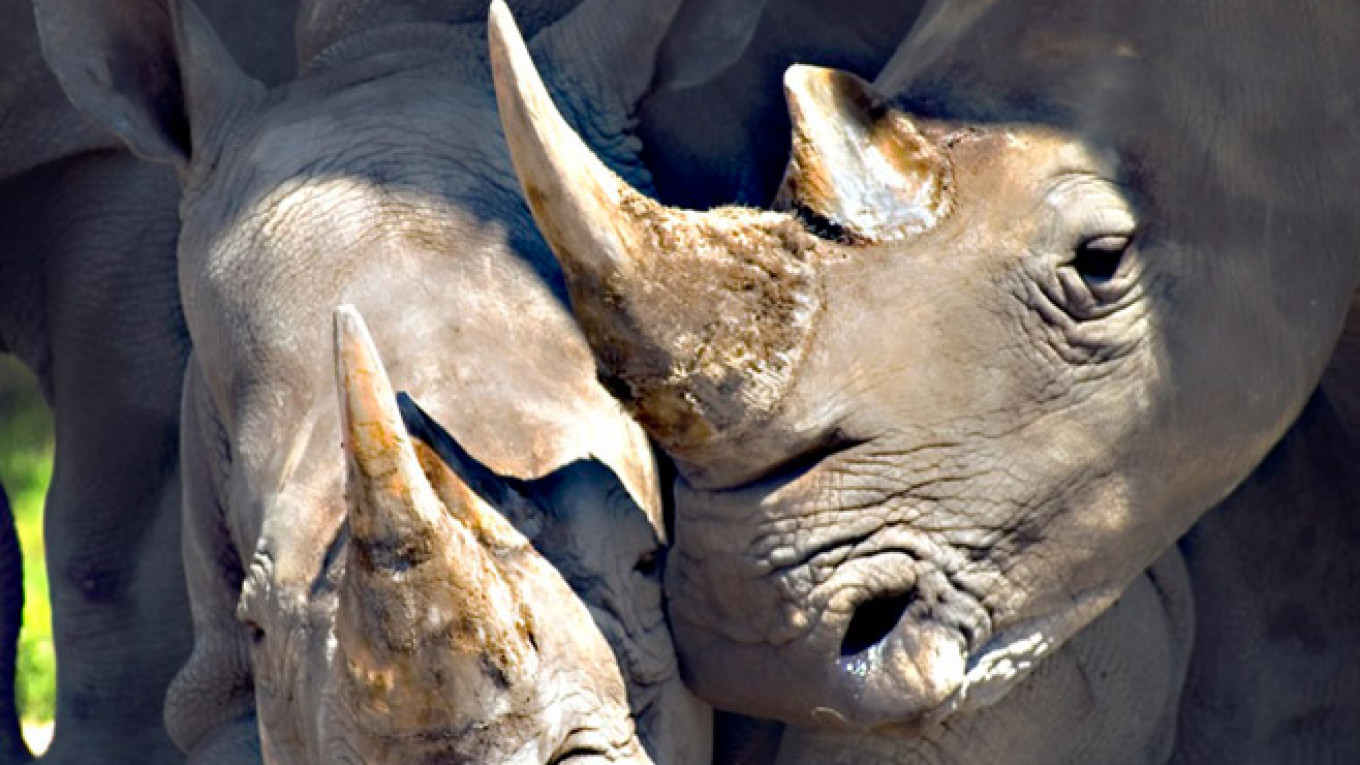A 13,300-year-old spear found on an island in the Arctic Ocean indicates that prehistoric humans reached territories where people avoid living even now.
The 90-centimeter spear made of a woolly rhinoceros's horn was found earlier this year on Bolshoi Lyakhovsky Island off the coast of Yakutia, The Siberian Times reported Monday.
The uninhabited island sits at a latitude of 73 degrees North in the Arctic Ocean.
So far, the northernmost paleolithic discoveries in the region, dating as far back as the 28th millennium B.C., were made on the Siberian mainland, 380 kilometers — three degrees of latitude — to the south.
Russian President Vladimir Putin examined the spear — said to still be sharp enough to kill — during his trip to regional capital Yakutsk last month, though he made no move to try it out.
The New Siberian Islands, which include the Bolshoi Lyakhovsky, also produced last year a uniquely preserved female mammoth carcass, its blood, according to an official report, remaining liquid after millennia in the permafrost.
A Message from The Moscow Times:
Dear readers,
We are facing unprecedented challenges. Russia's Prosecutor General's Office has designated The Moscow Times as an "undesirable" organization, criminalizing our work and putting our staff at risk of prosecution. This follows our earlier unjust labeling as a "foreign agent."
These actions are direct attempts to silence independent journalism in Russia. The authorities claim our work "discredits the decisions of the Russian leadership." We see things differently: we strive to provide accurate, unbiased reporting on Russia.
We, the journalists of The Moscow Times, refuse to be silenced. But to continue our work, we need your help.
Your support, no matter how small, makes a world of difference. If you can, please support us monthly starting from just $2. It's quick to set up, and every contribution makes a significant impact.
By supporting The Moscow Times, you're defending open, independent journalism in the face of repression. Thank you for standing with us.
Remind me later.






